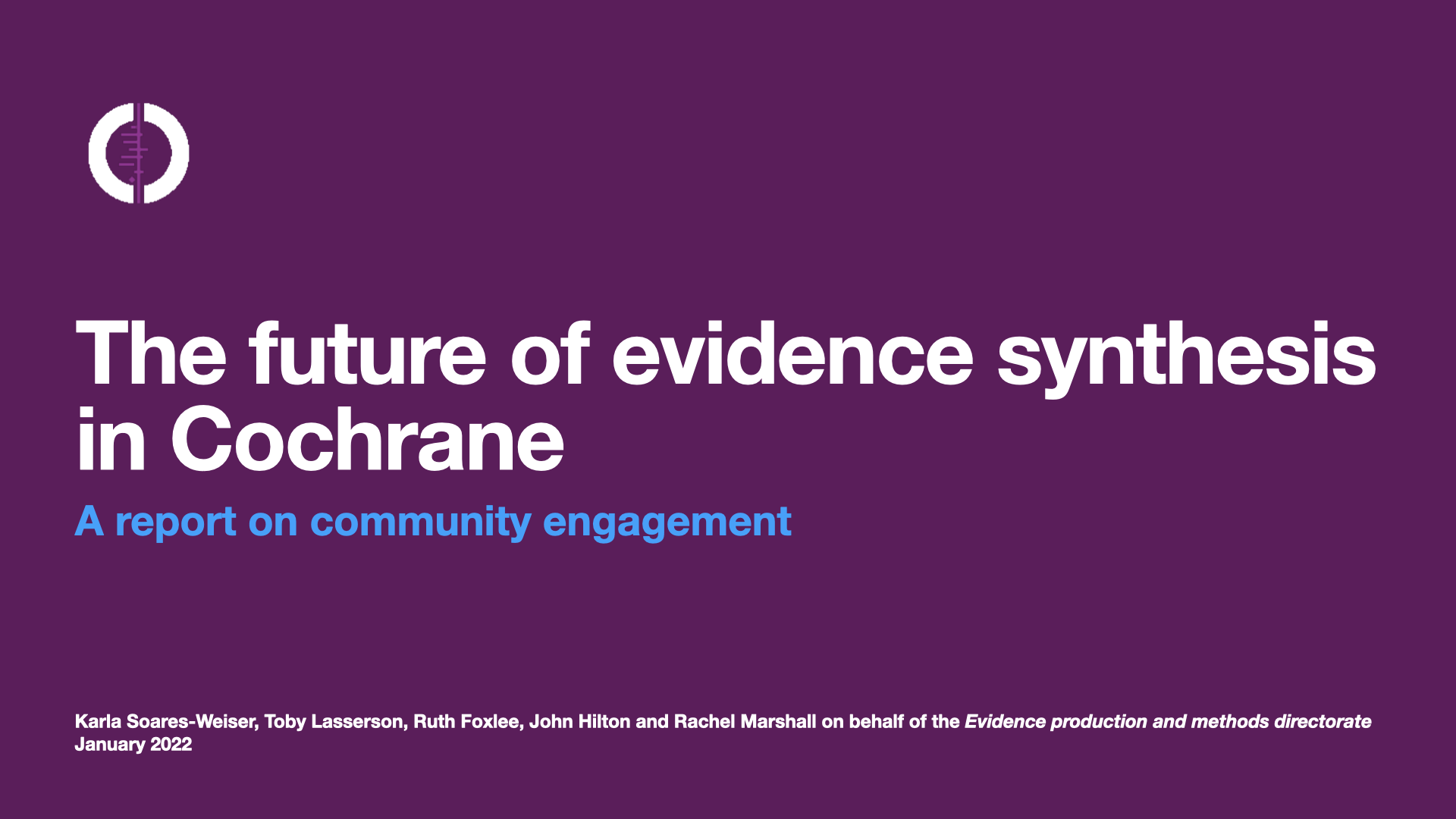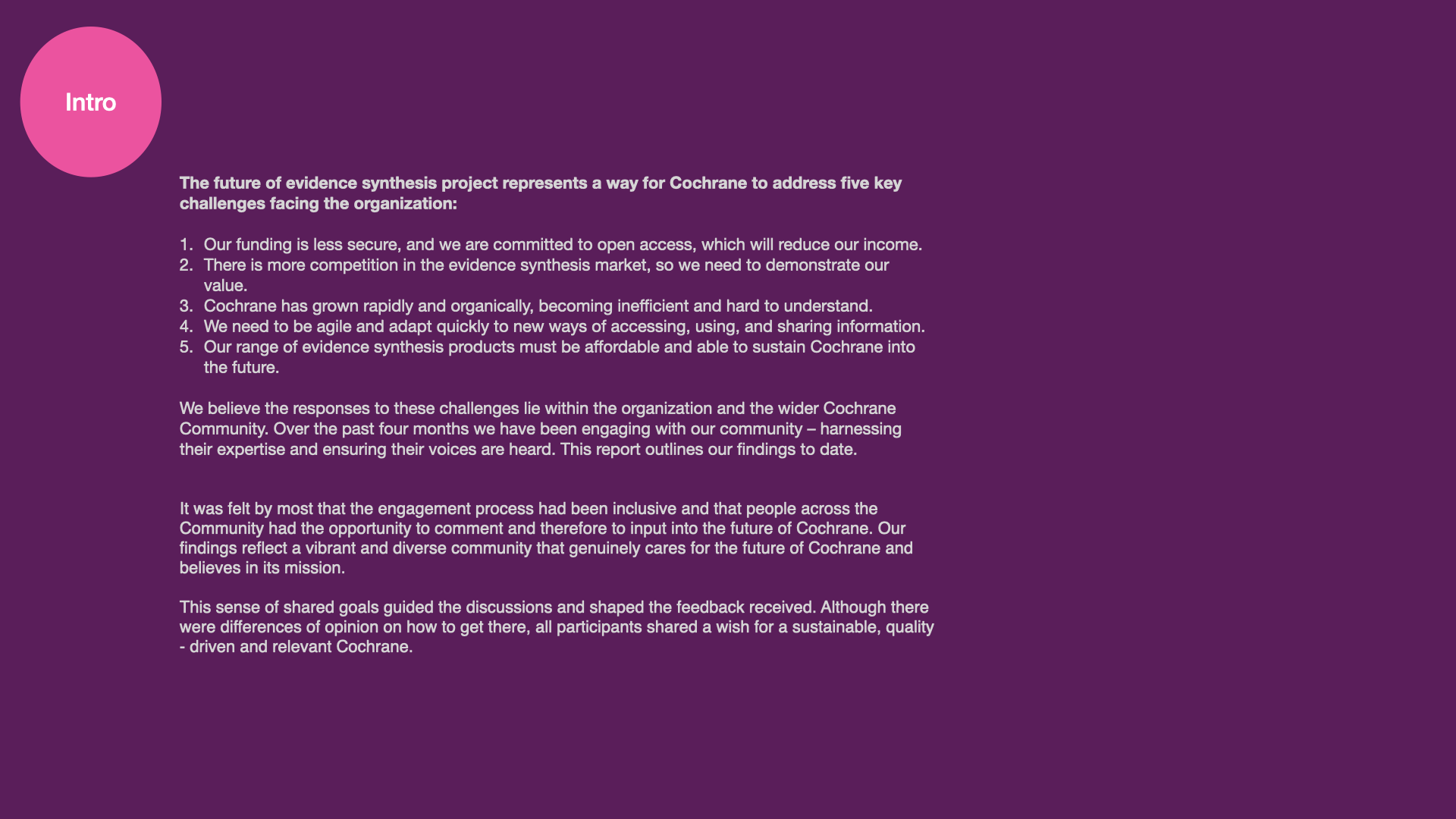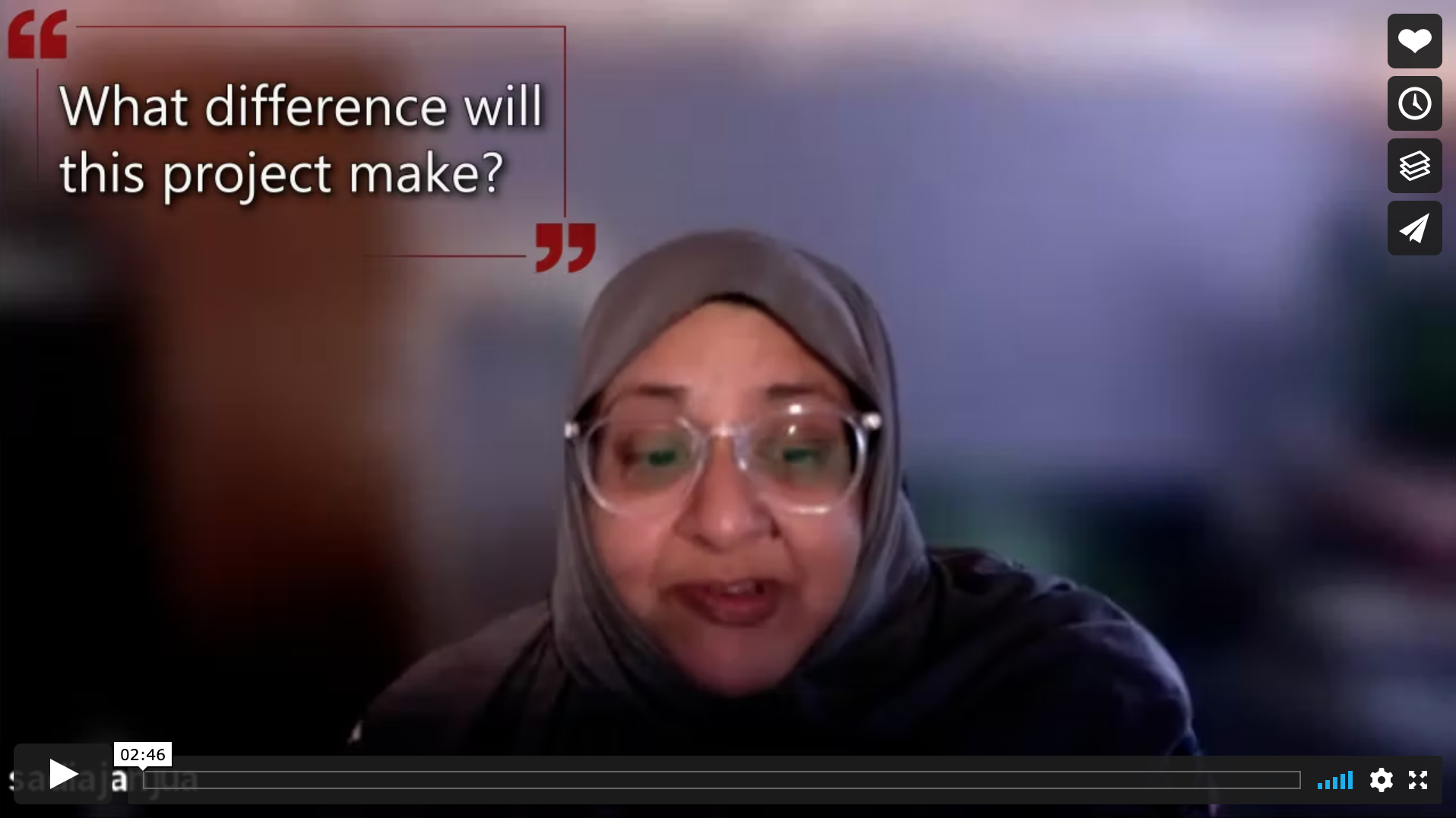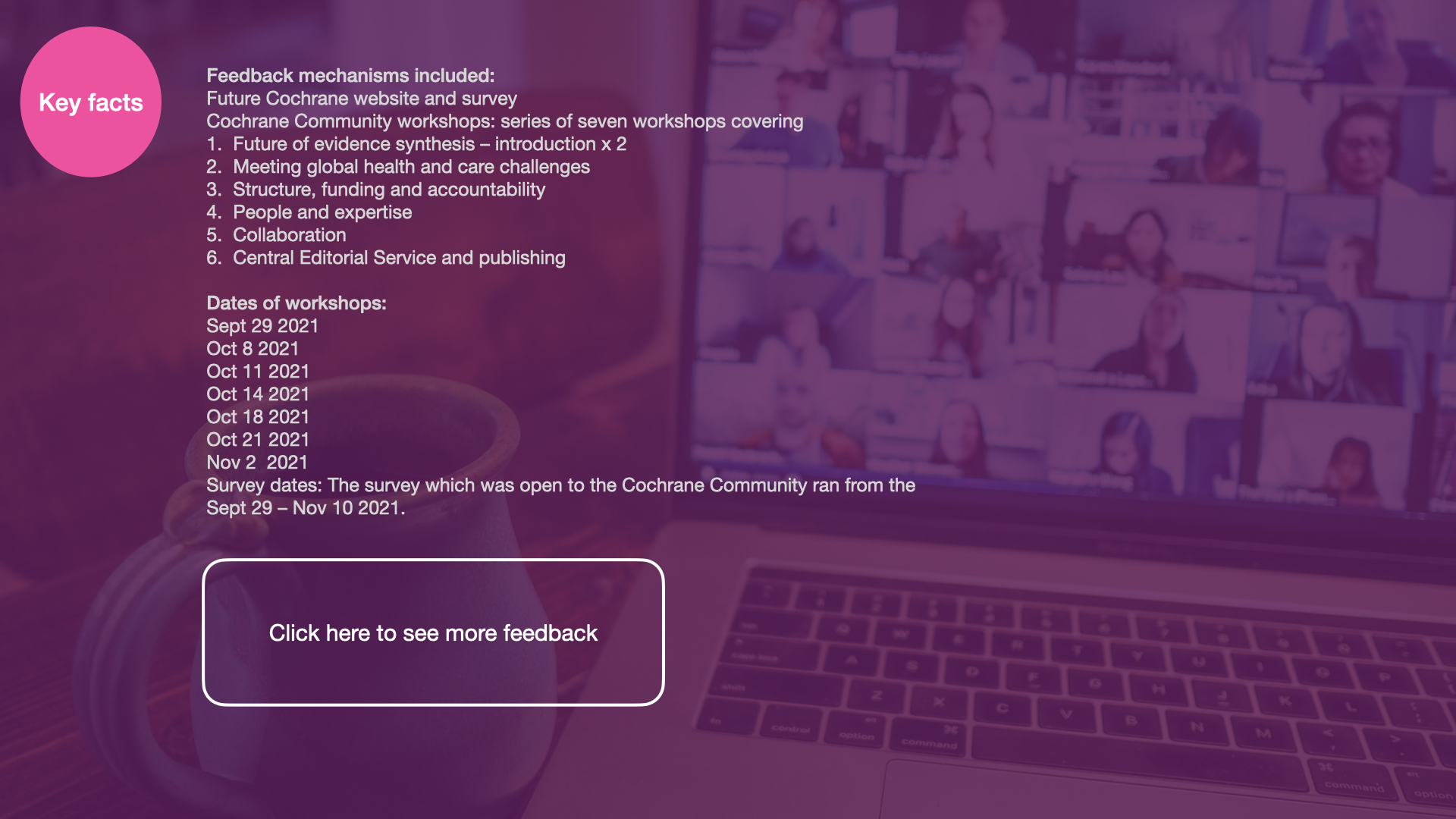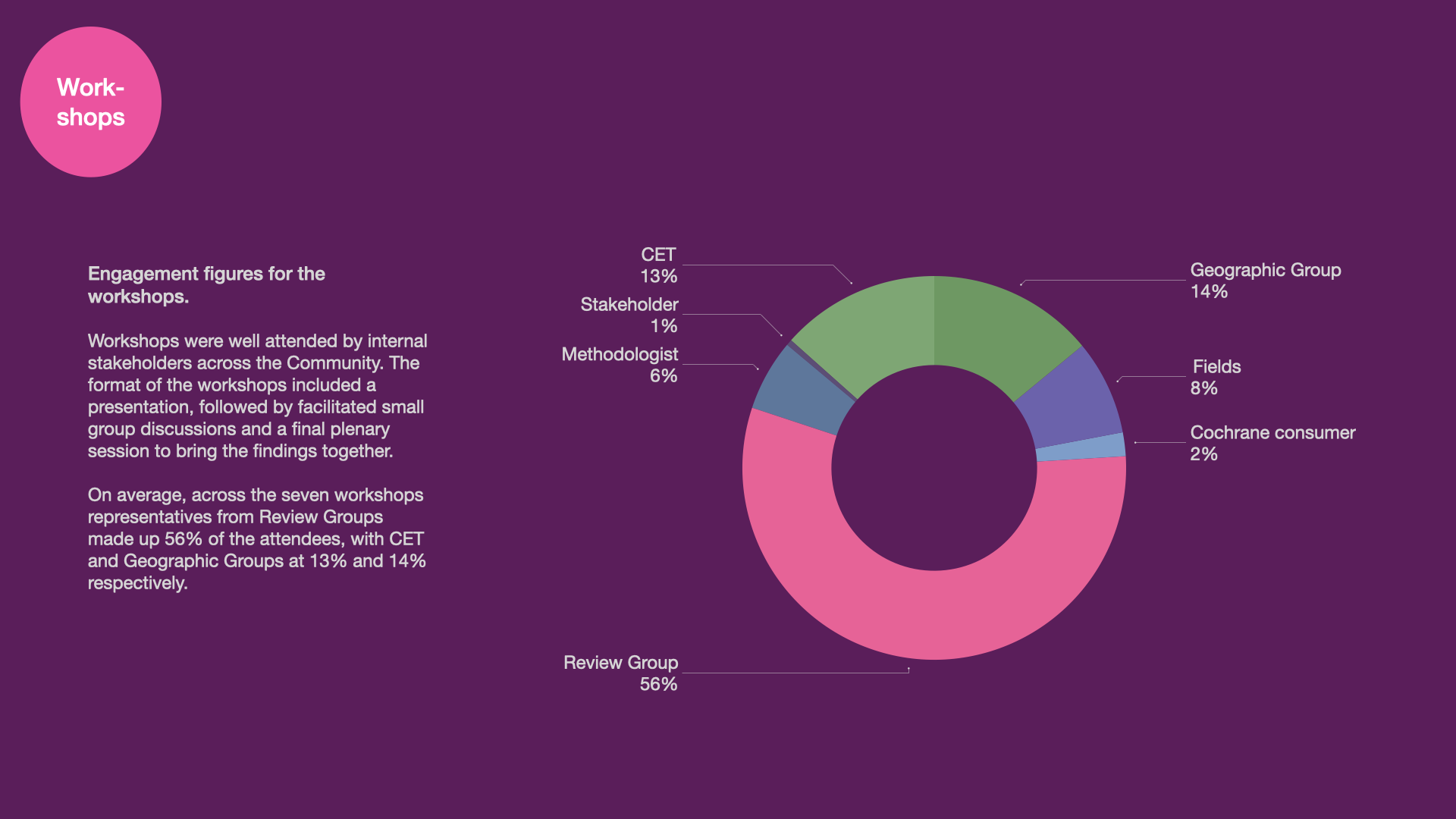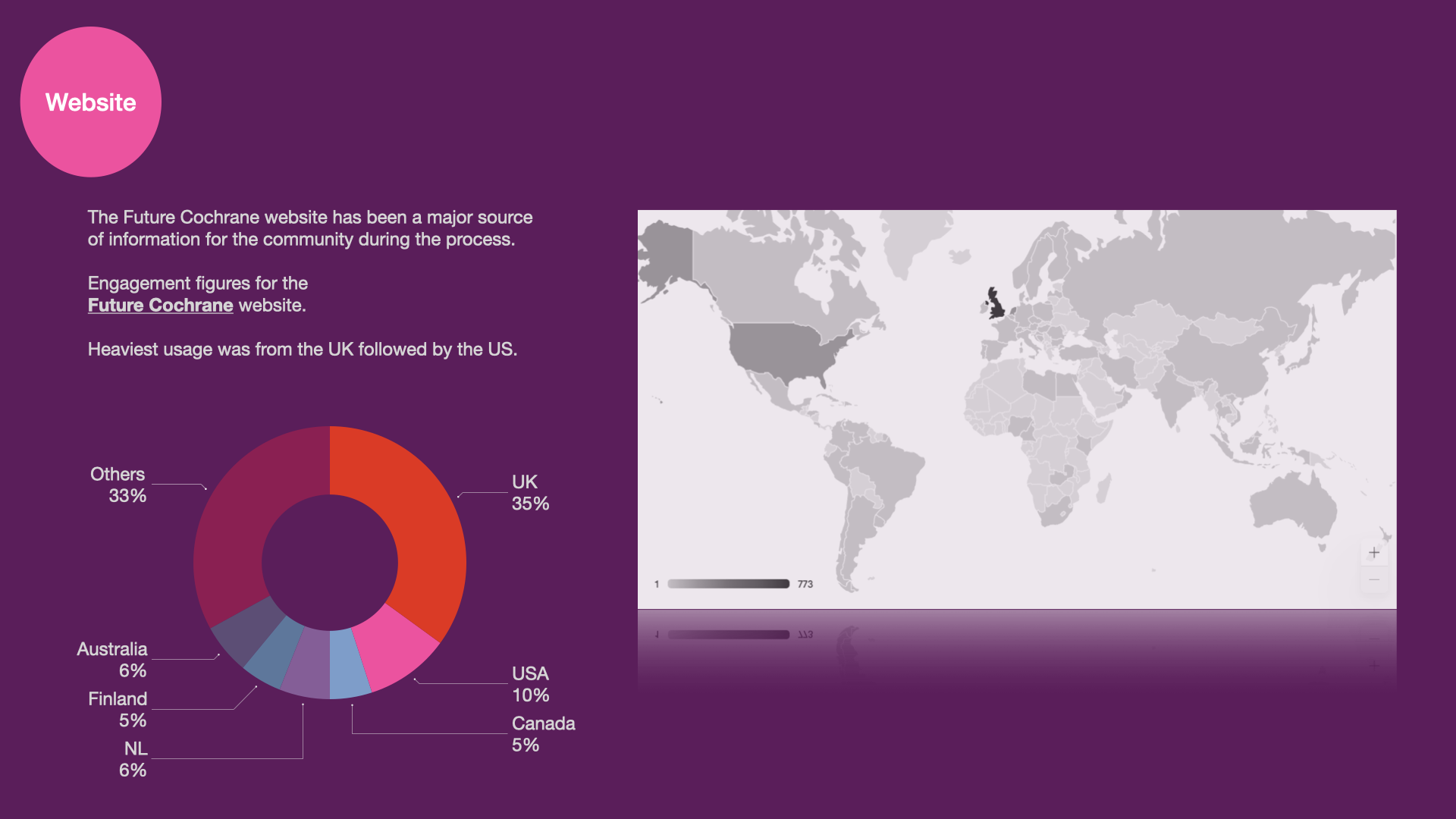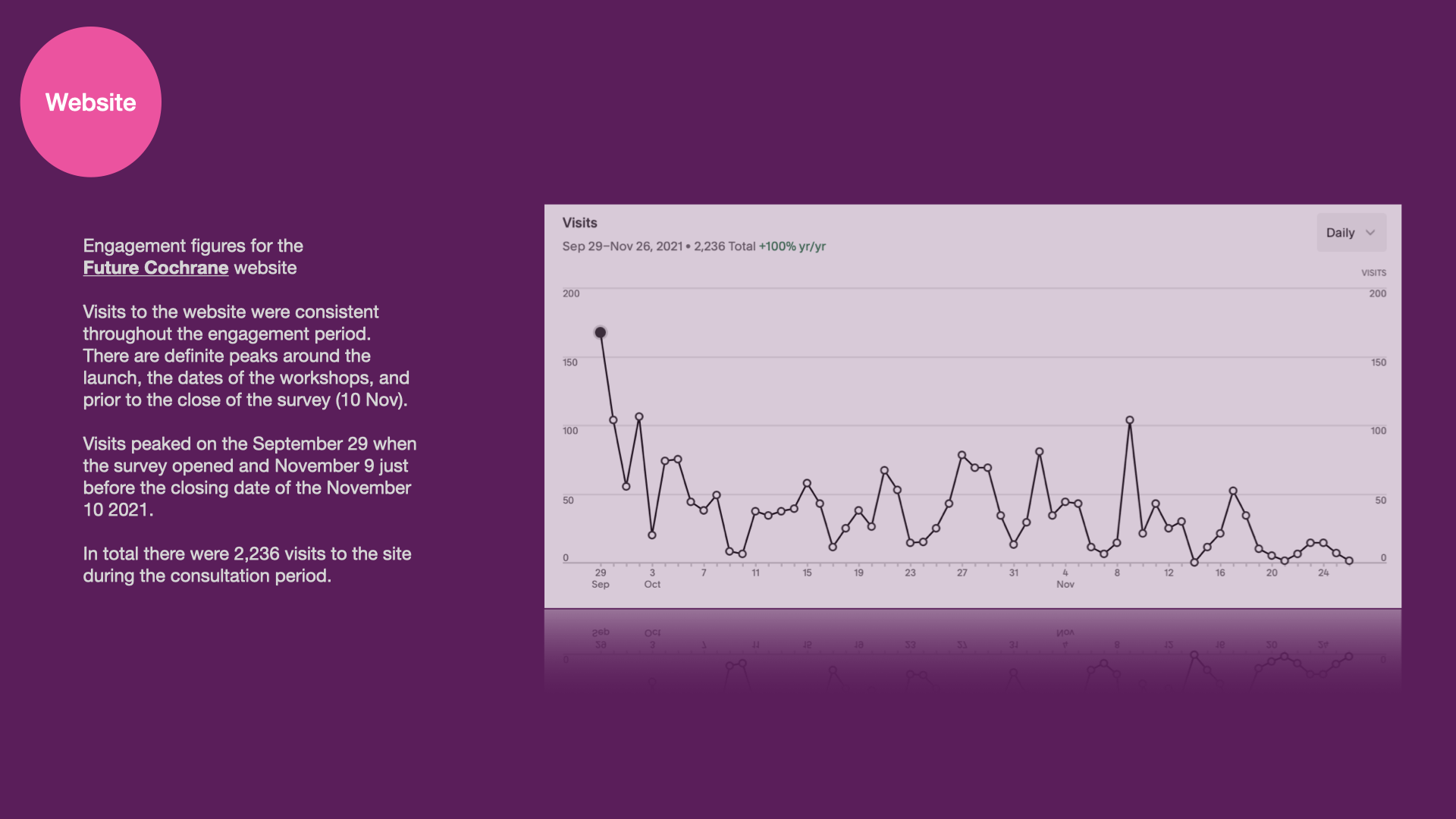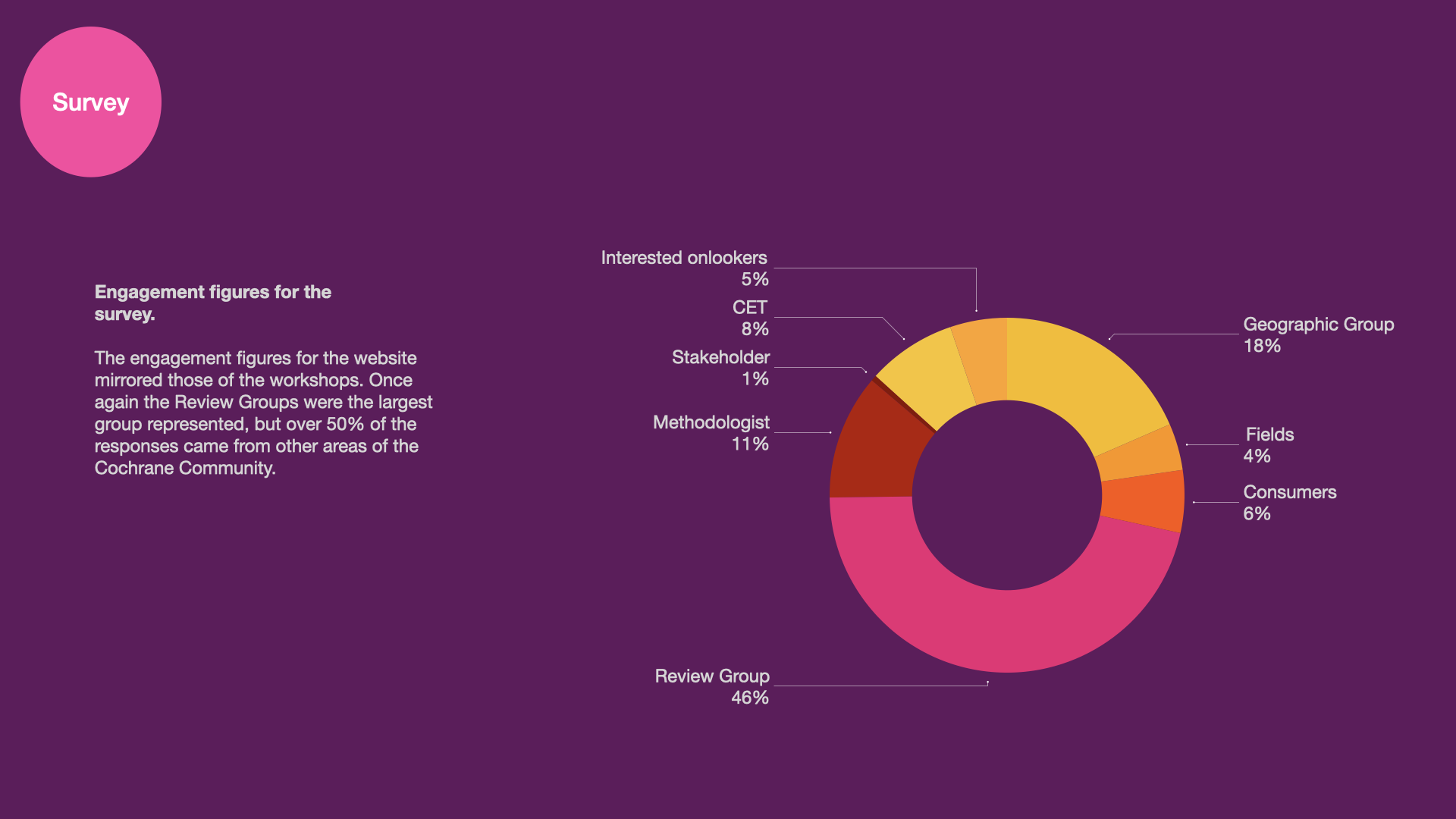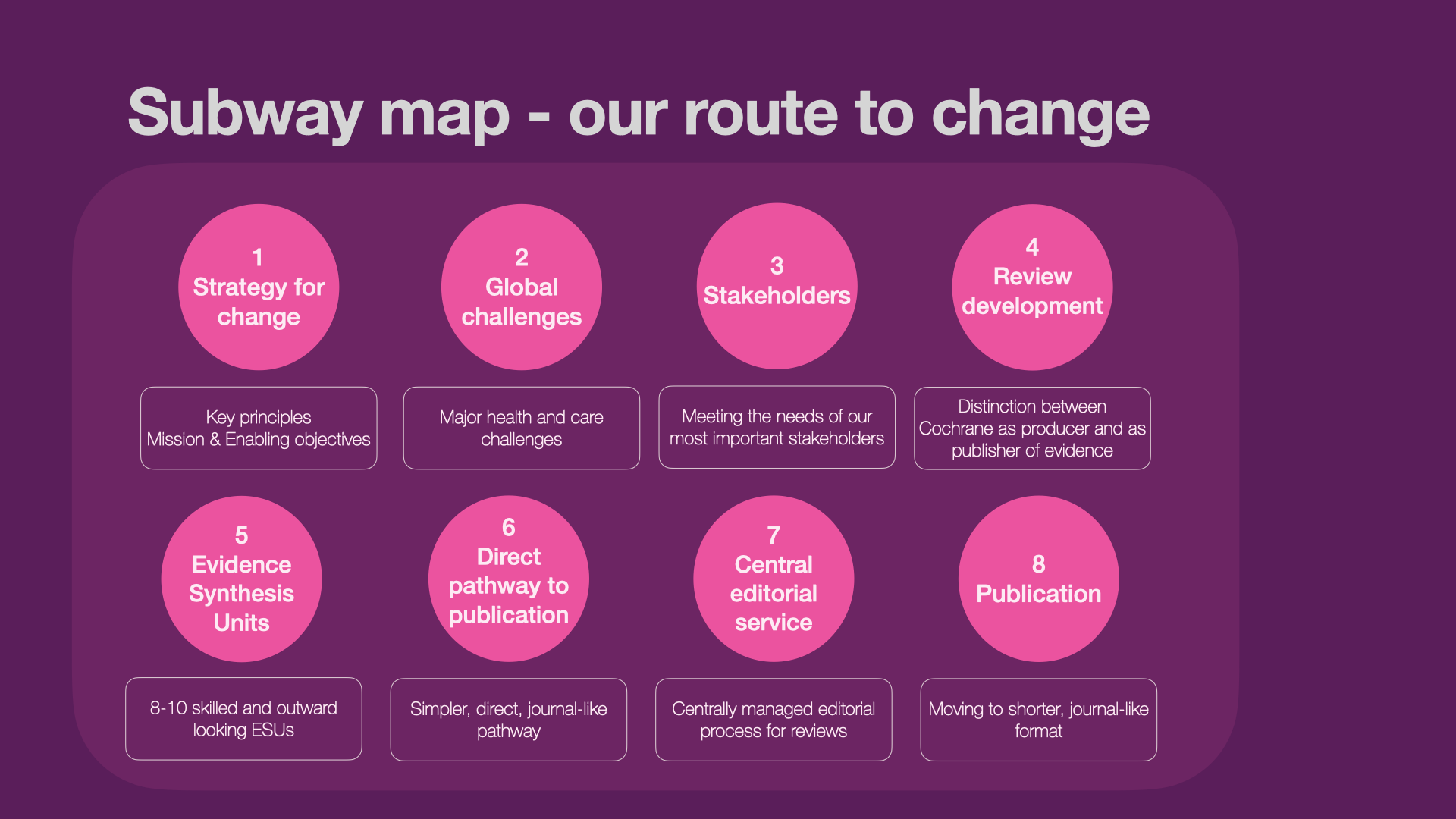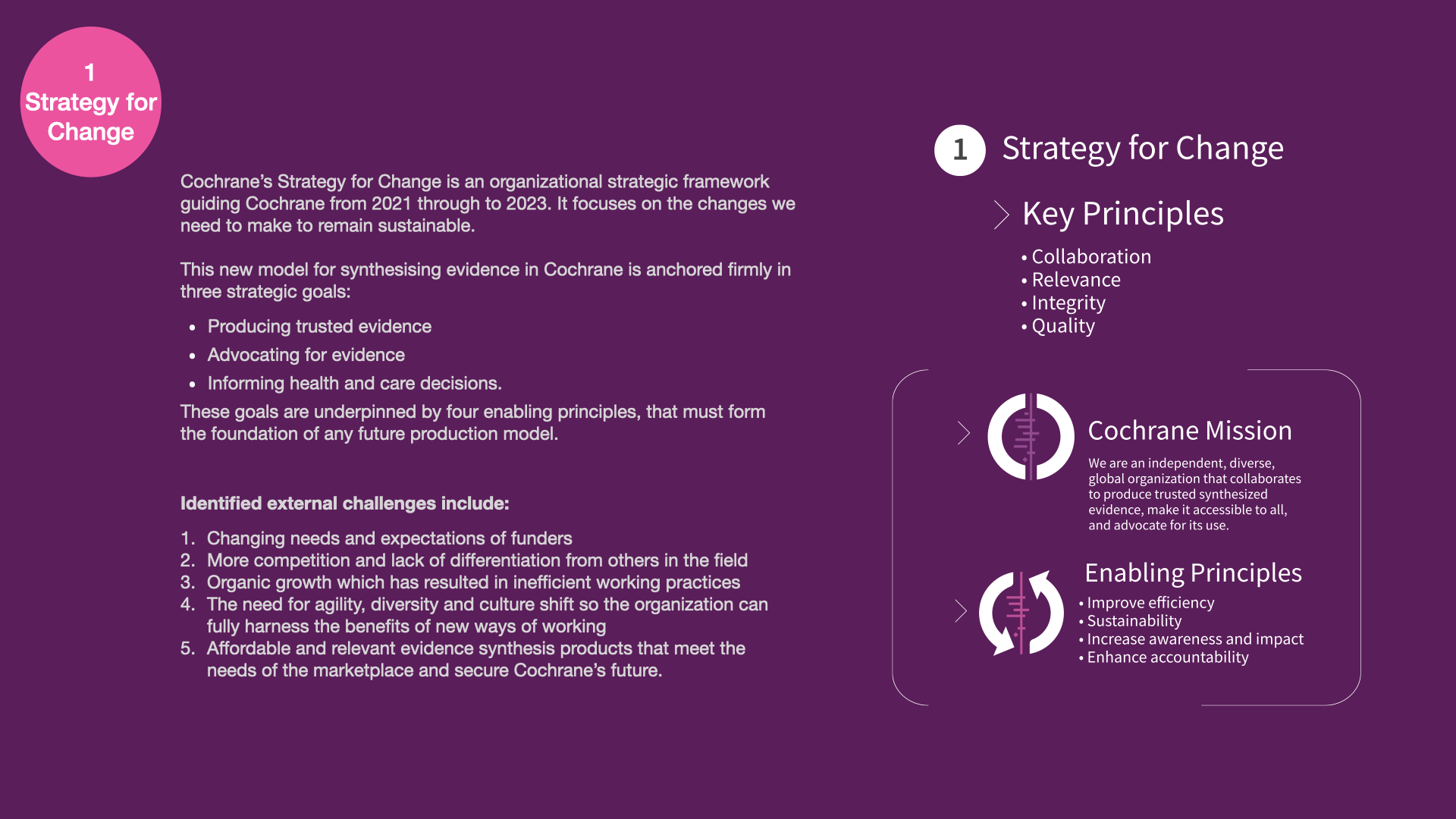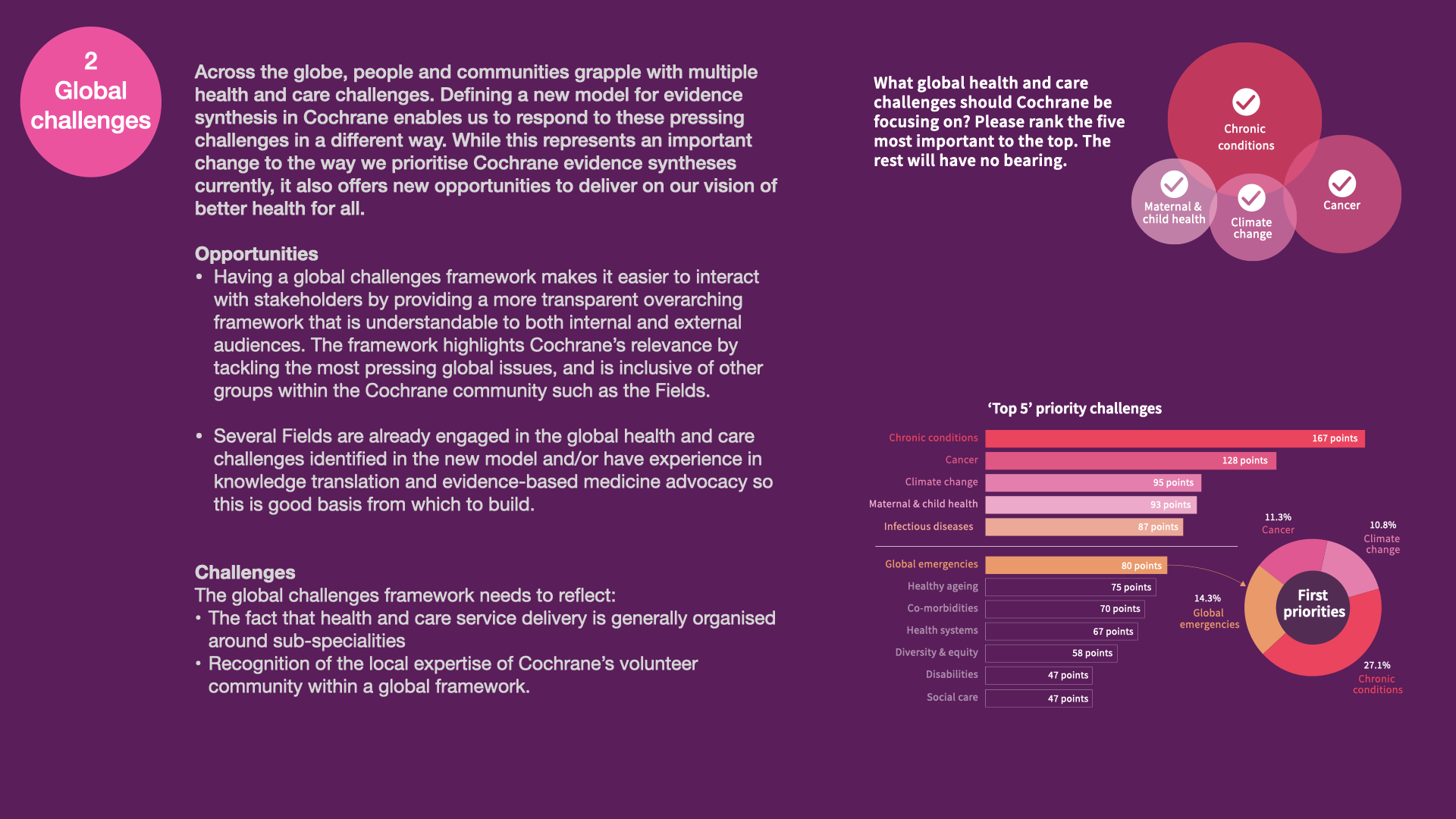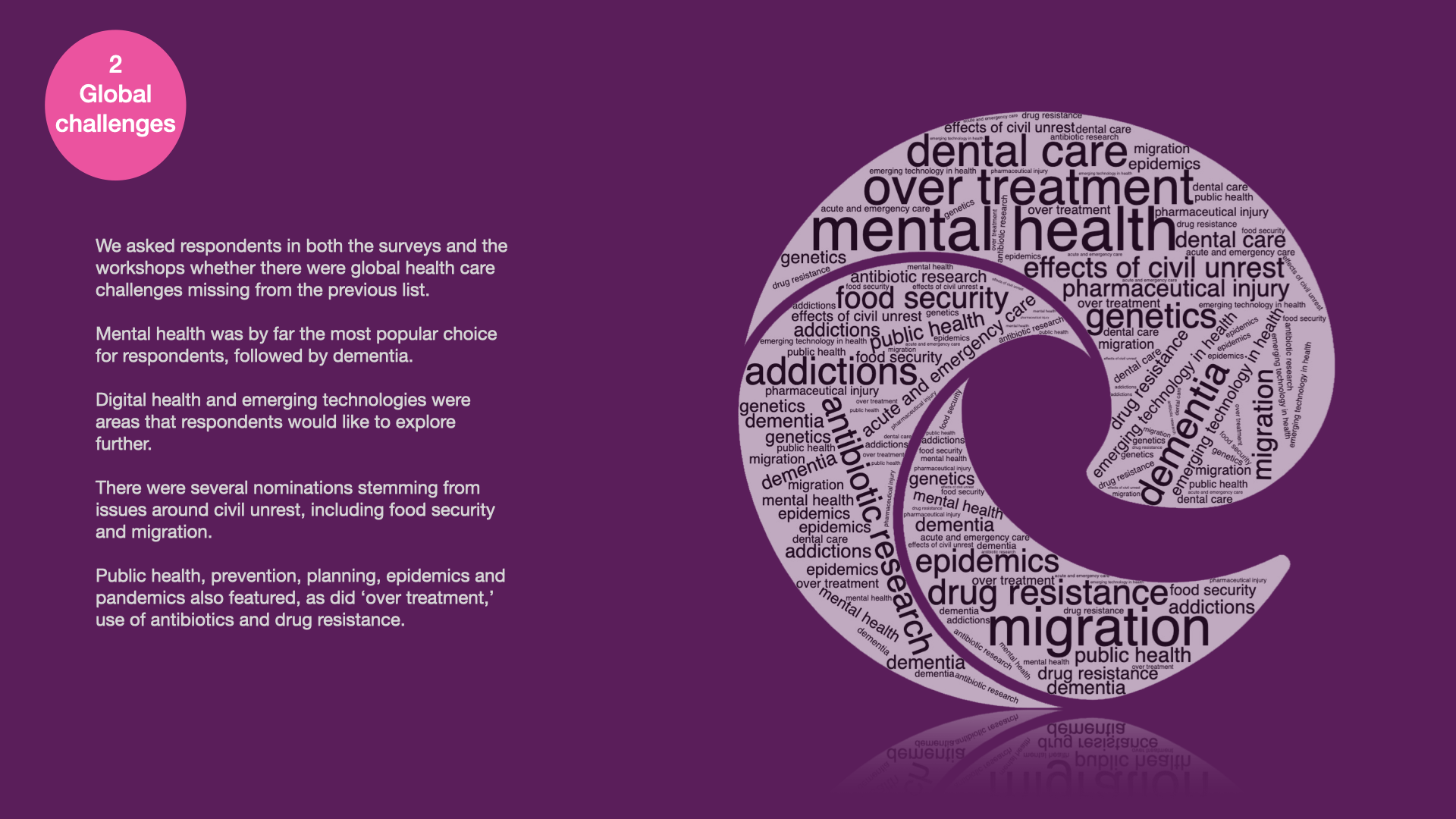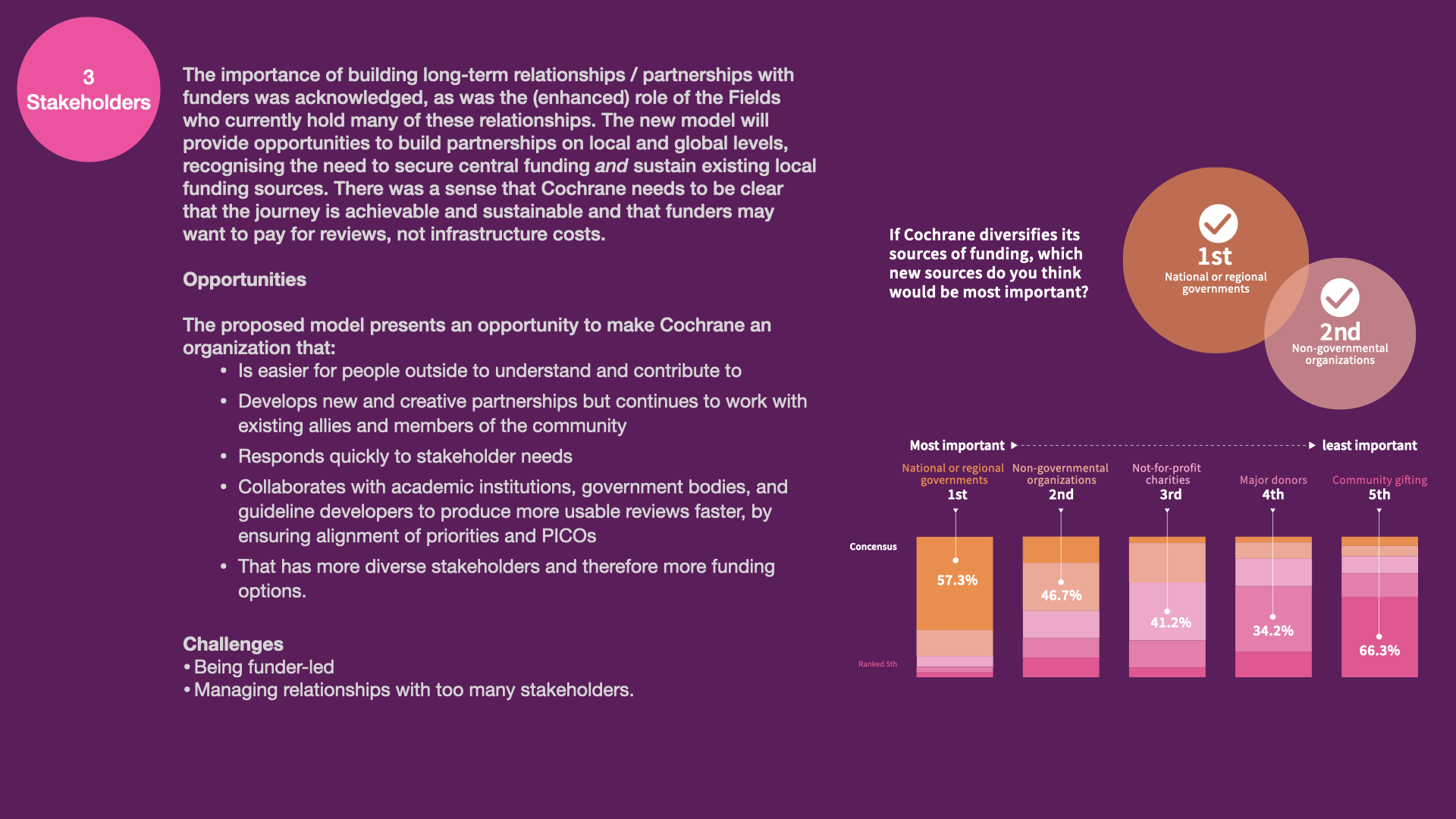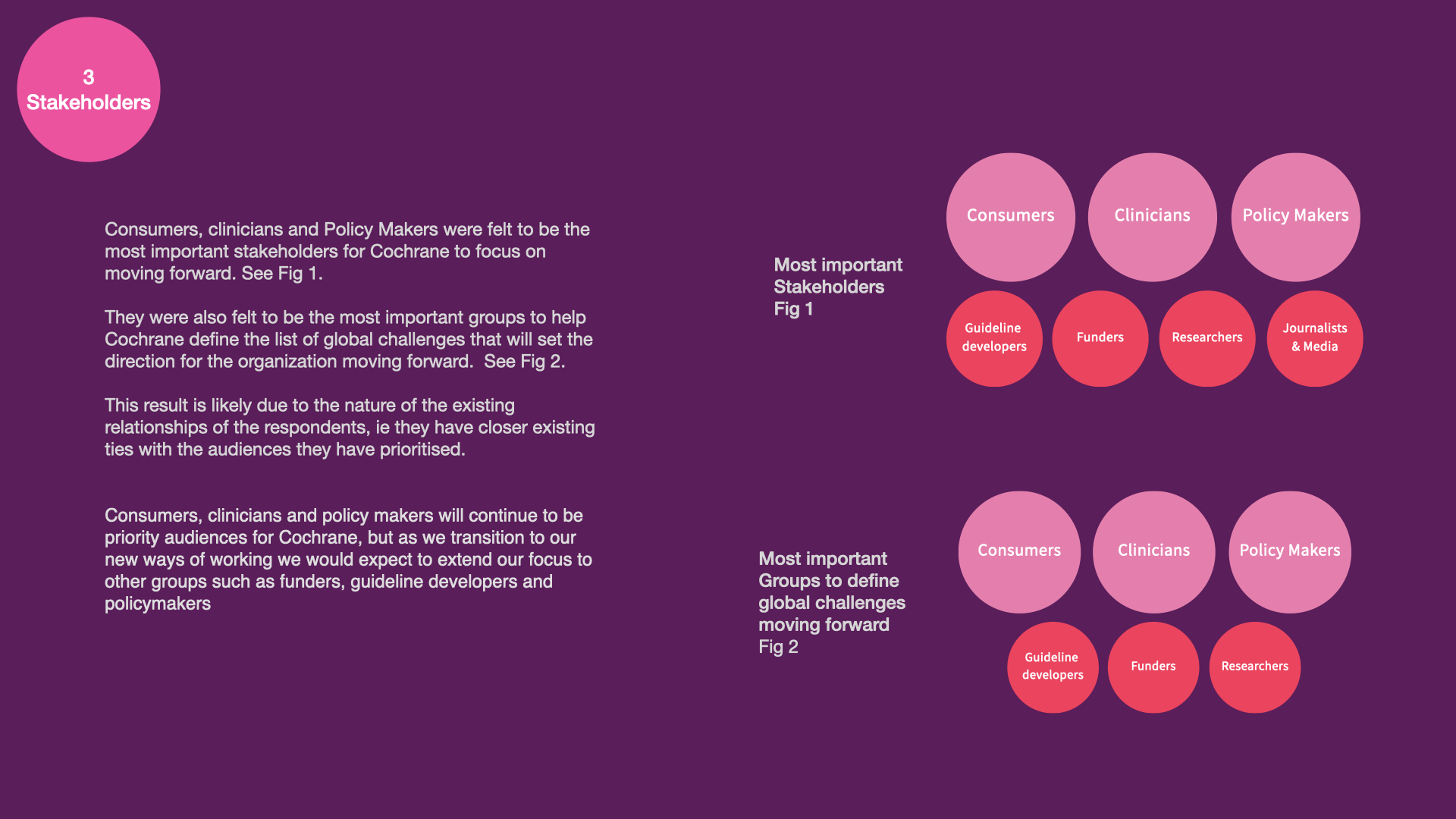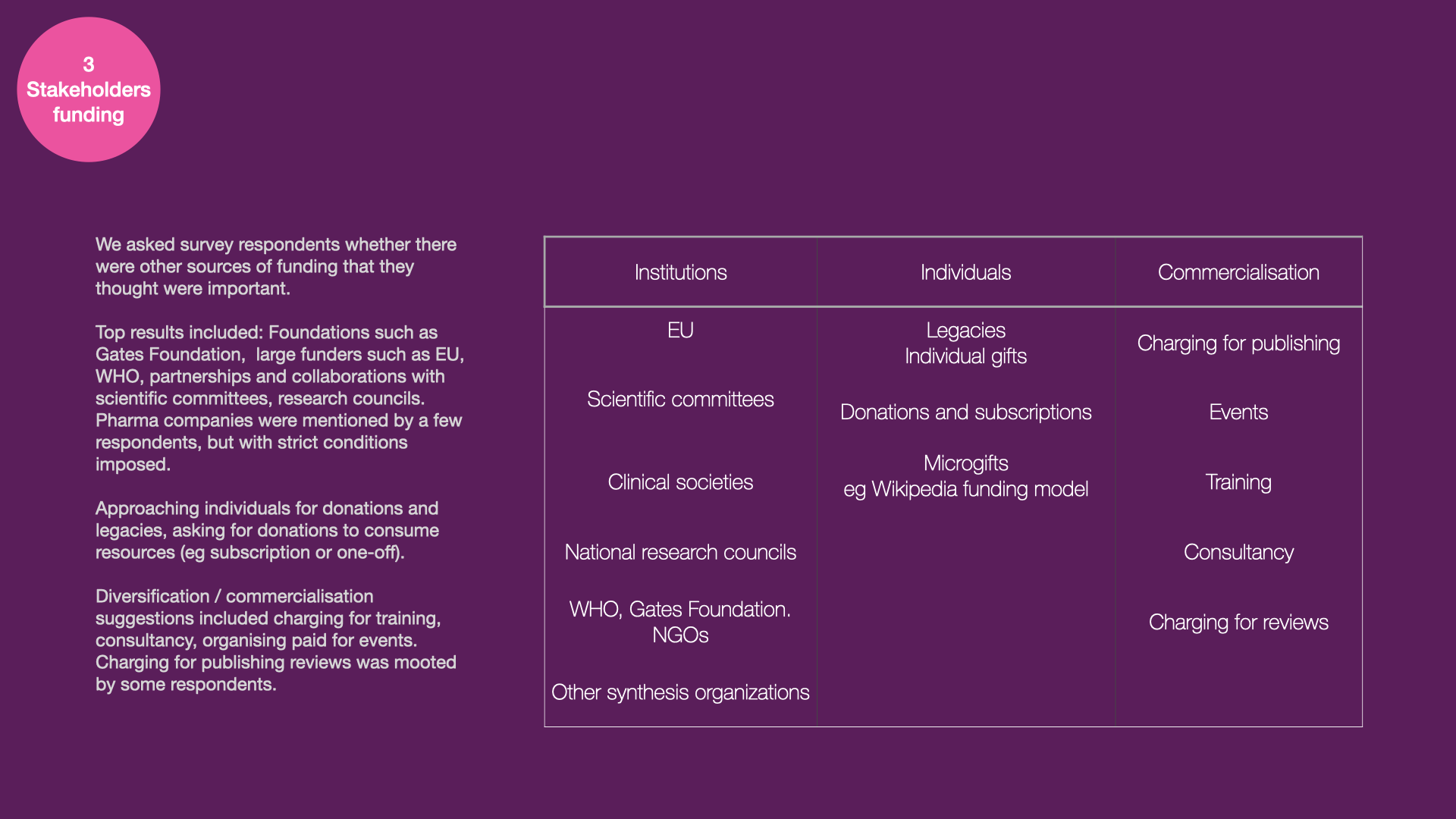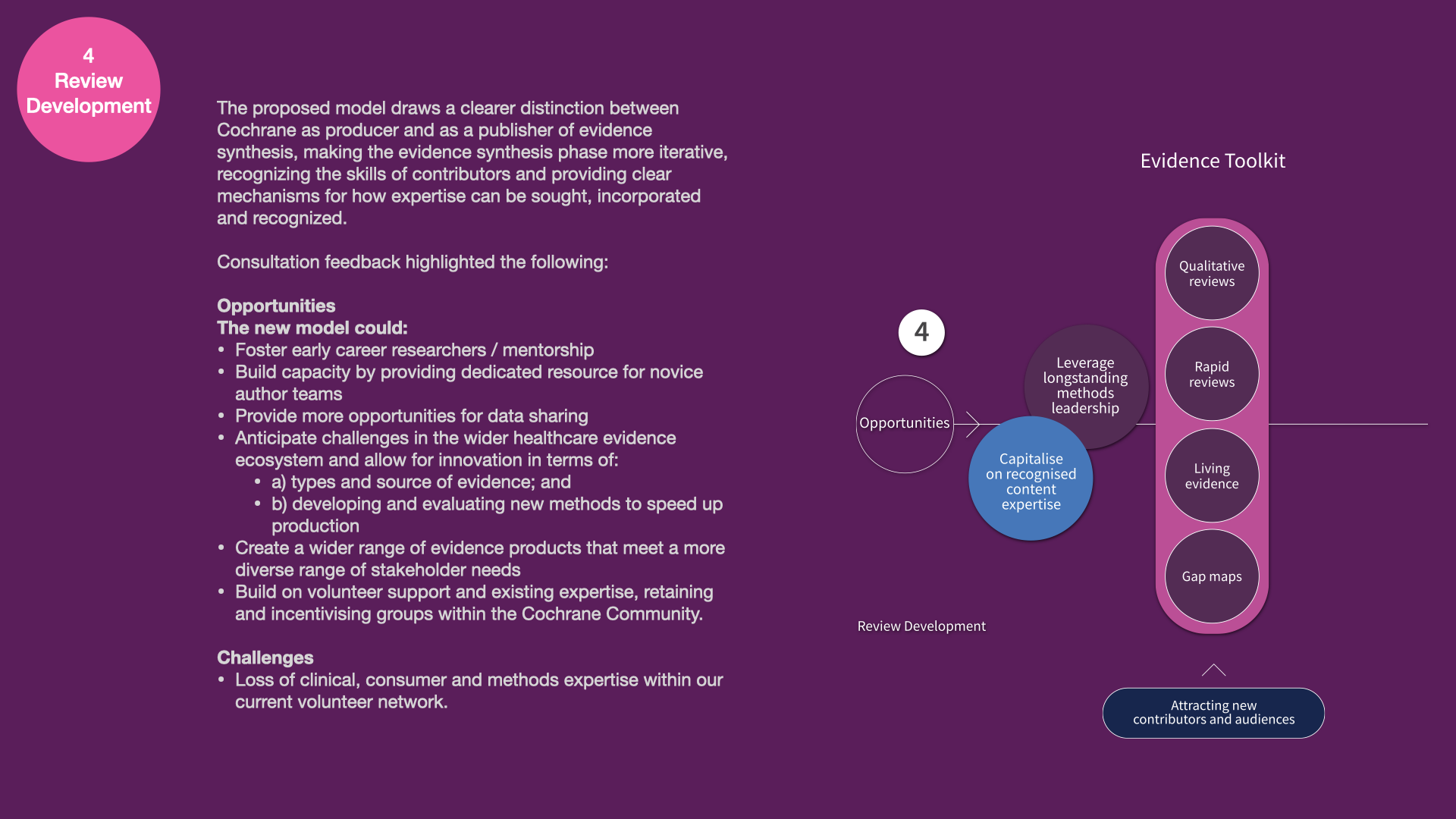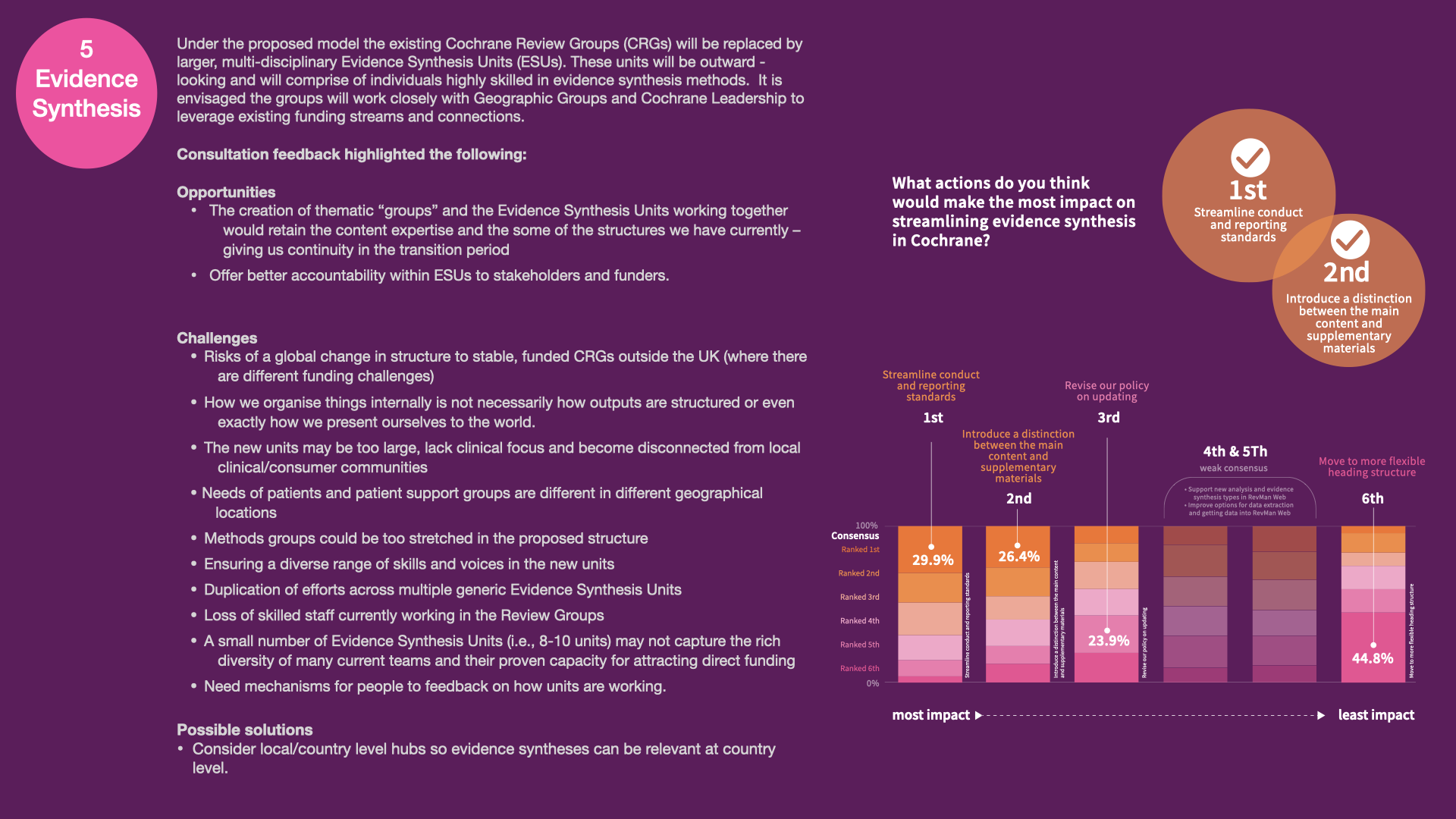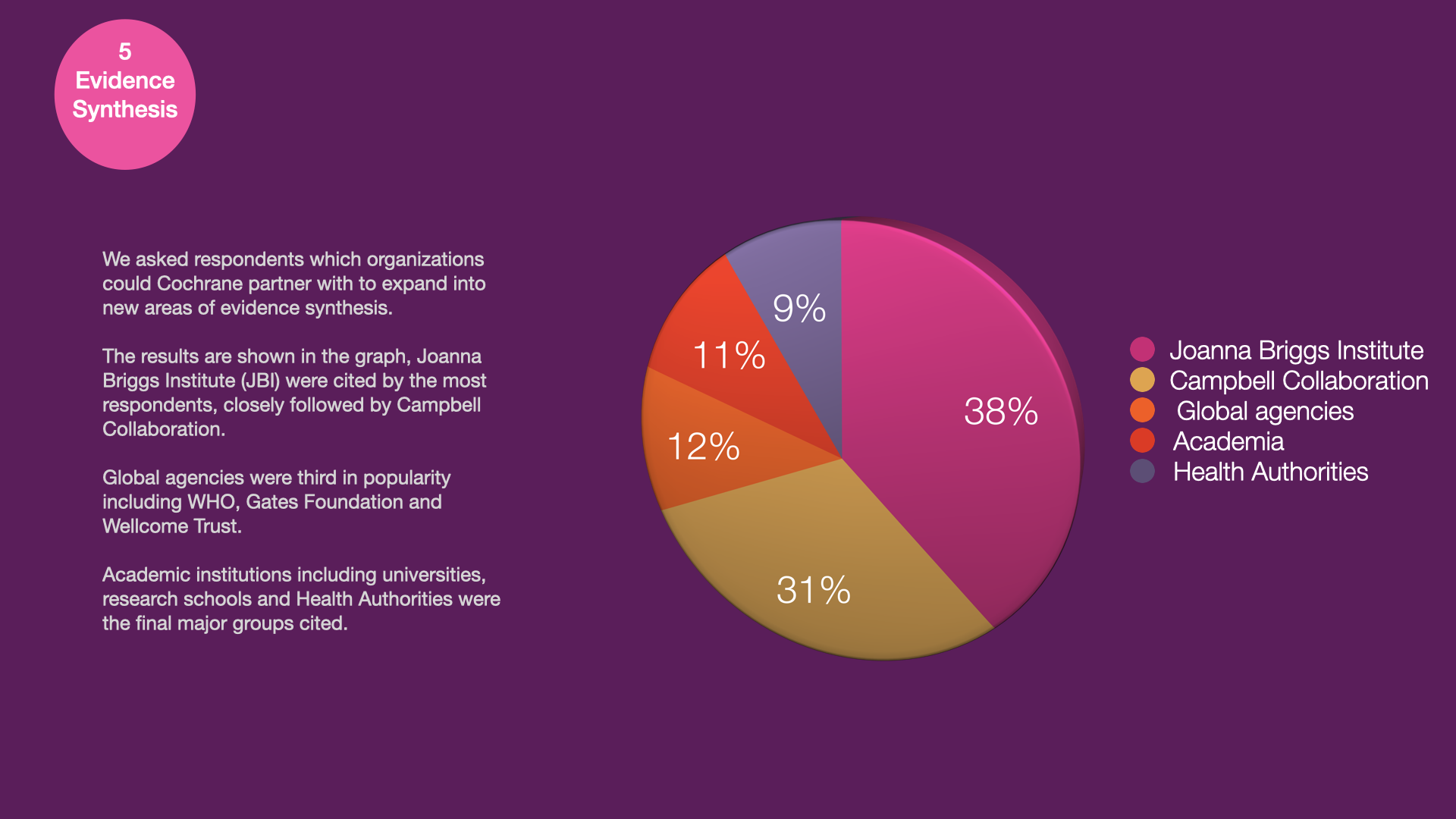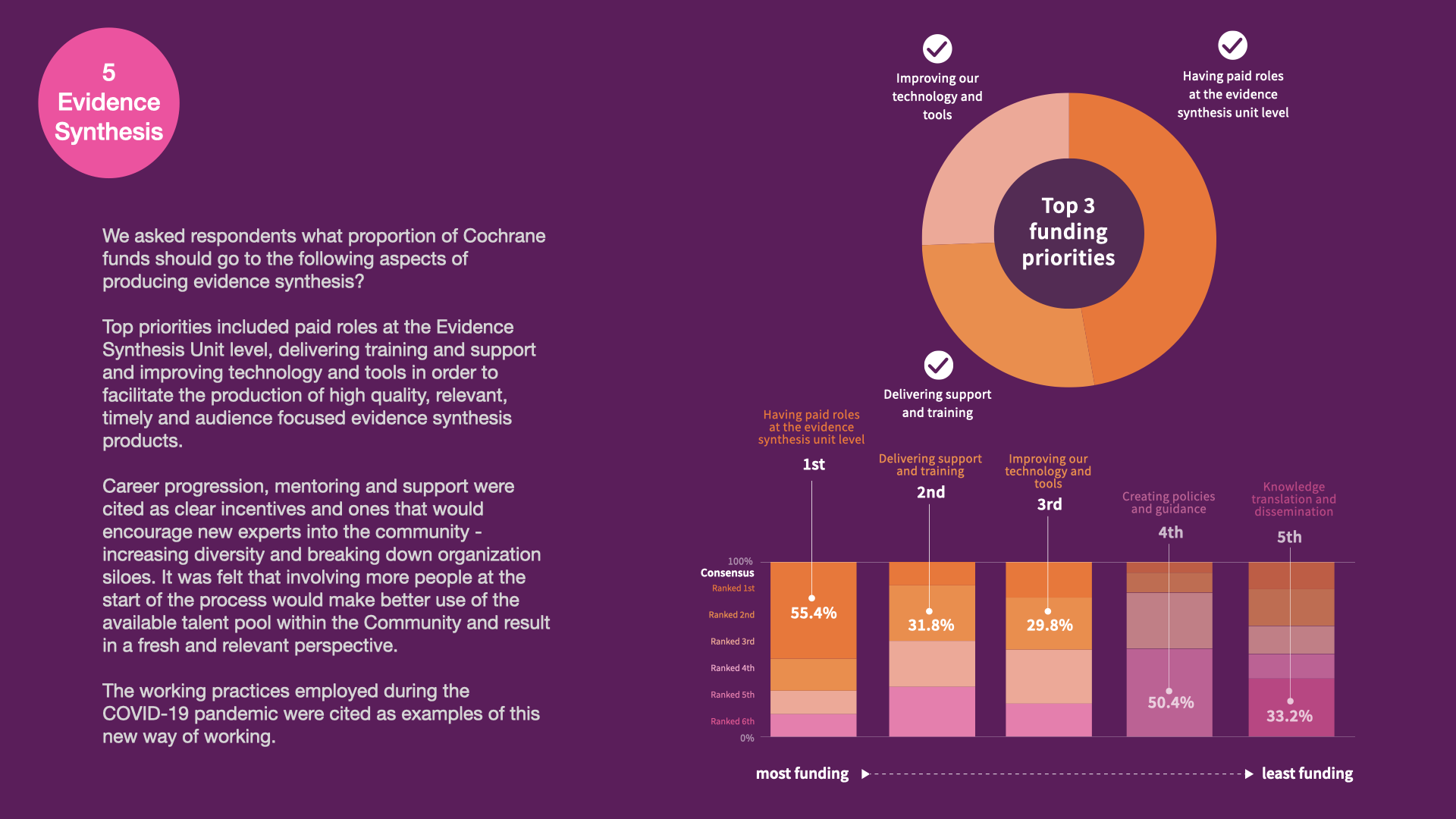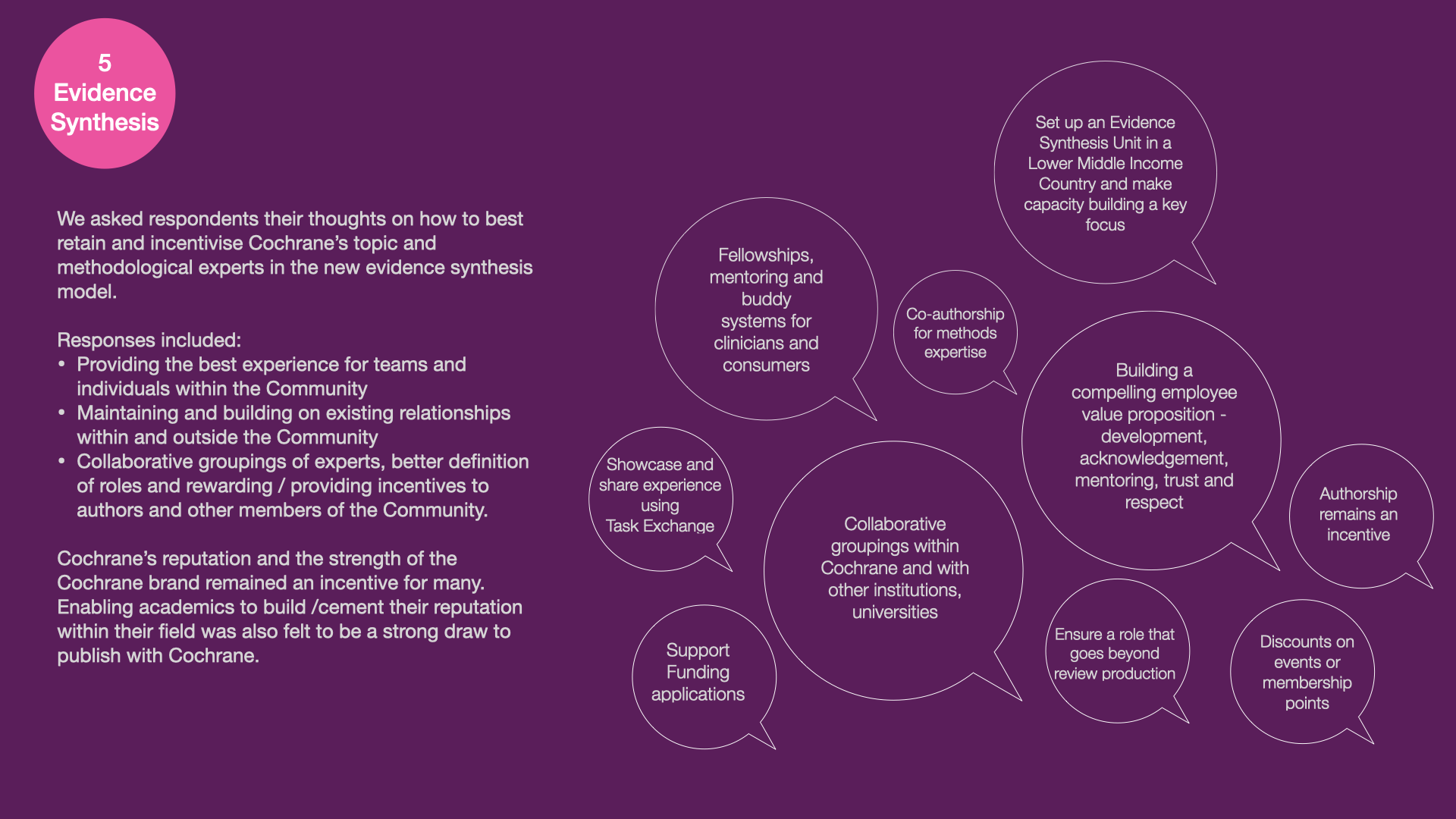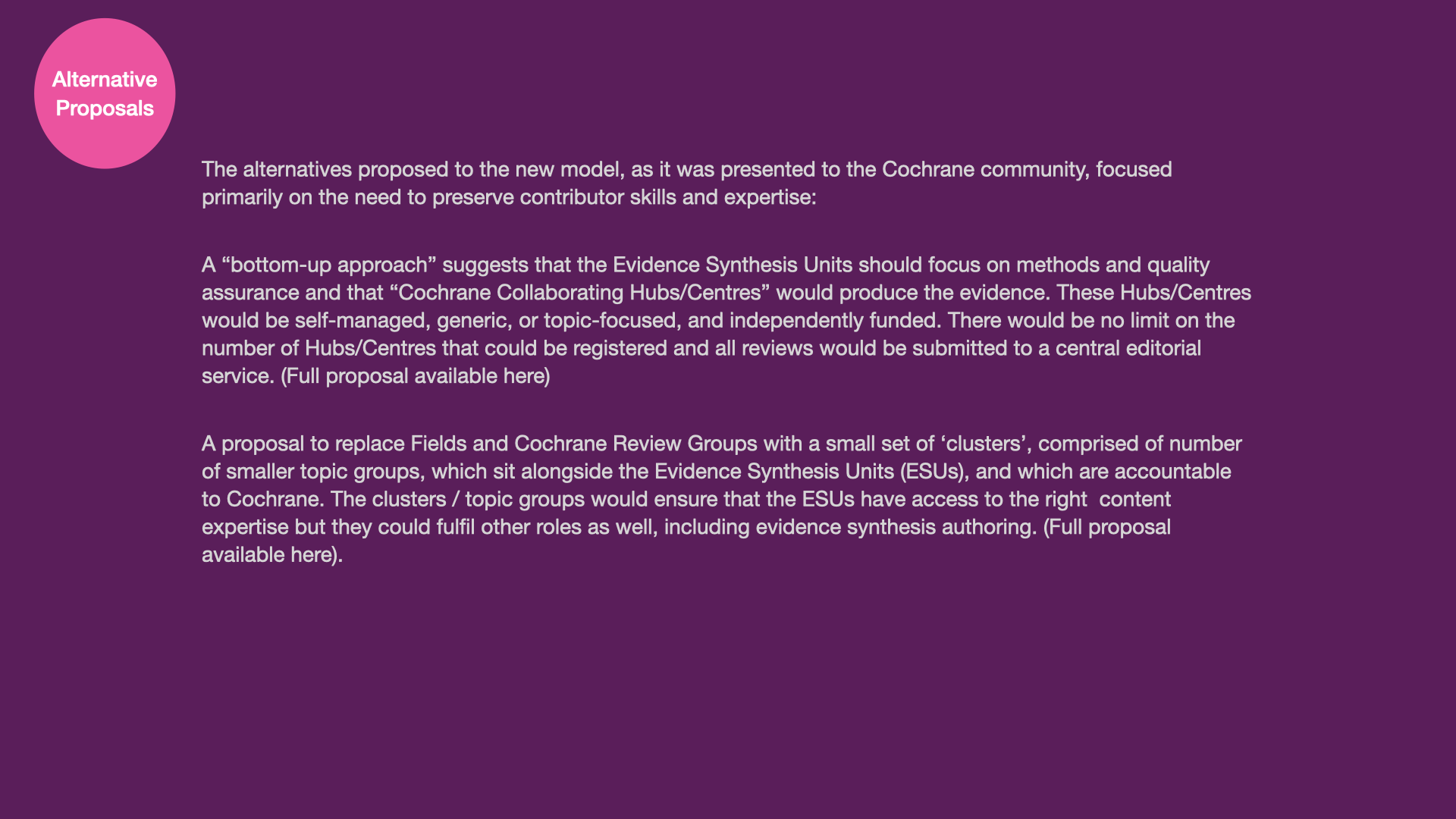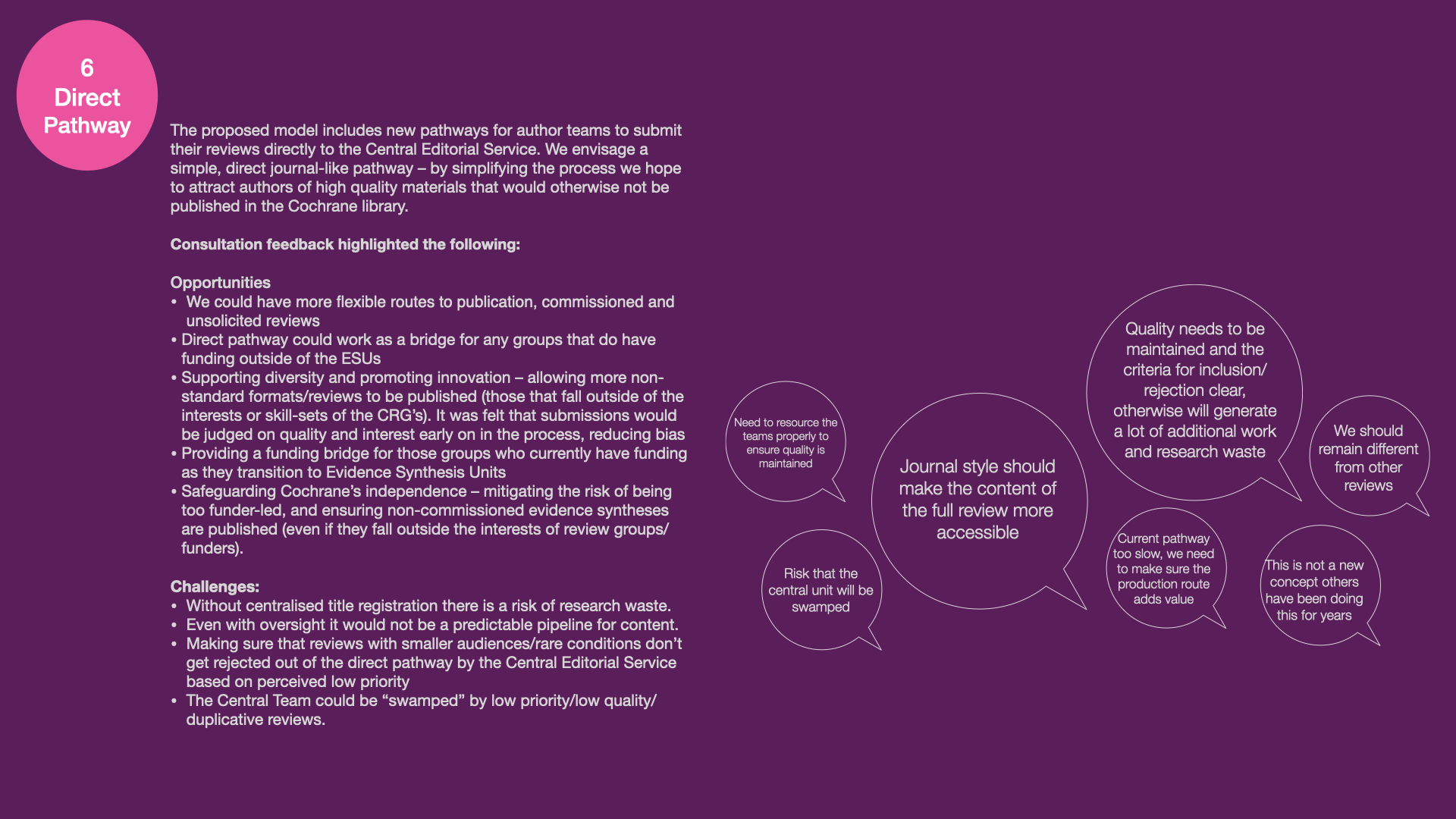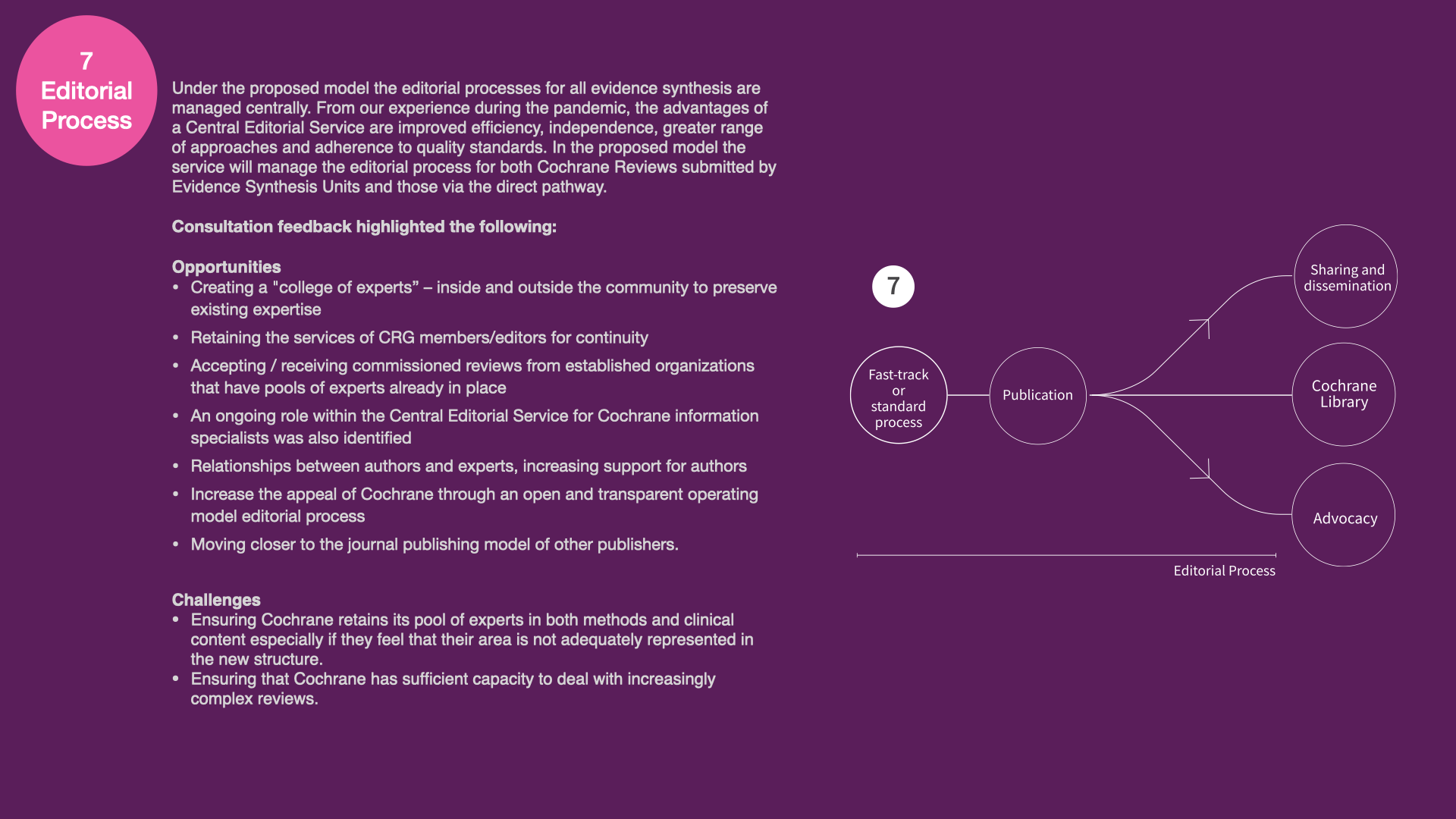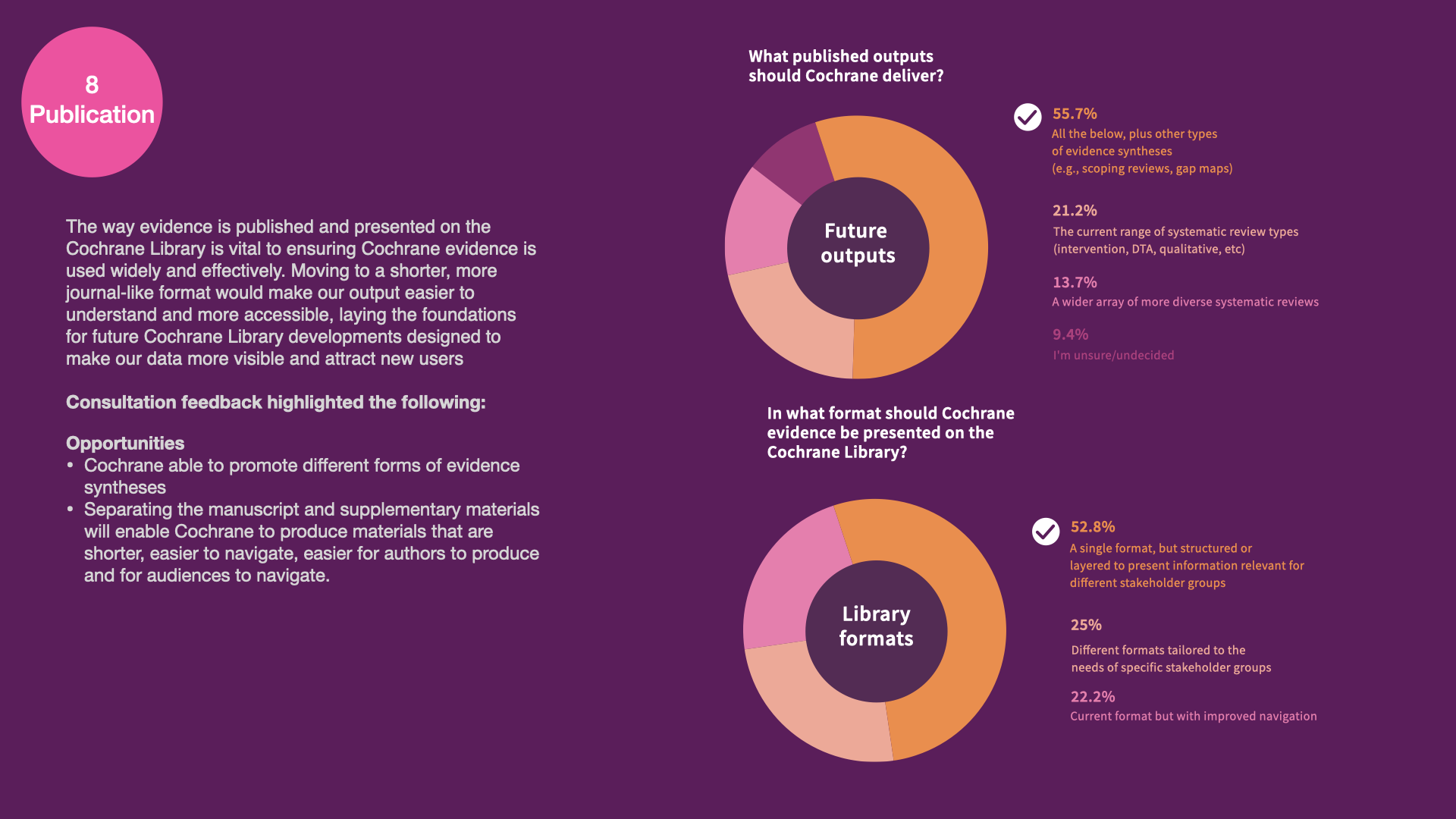Collaboration
/kəlabəˈreɪʃn/ noun
the act of working with another person or group of people to create or produce something.
No matter where you live around the globe at this moment, there is challenge and uncertainty.
For Cochrane, it’s a time that demands a decisive response to a rapidly changing world.
In thinking about how we produce evidence syntheses there are different options we could pursue. We presented one option and asked for feedback from the Cochrane community through a workshop series and survey on this site.
We have distilled the responses, acknowledged criticisms and concerns, considered the few alternatives that were presented and noted there was hope and excitement for the future. Cochrane is at a crossroads and the feedback we’ve received is already helping to reshape our thinking about a new model of evidence synthesis. Your insights into how Cochrane can adapt to the challenges ahead are set out in this document and will help us to forge our path.
A sincere thank you to all who took the time to help shape Cochrane’s future.



